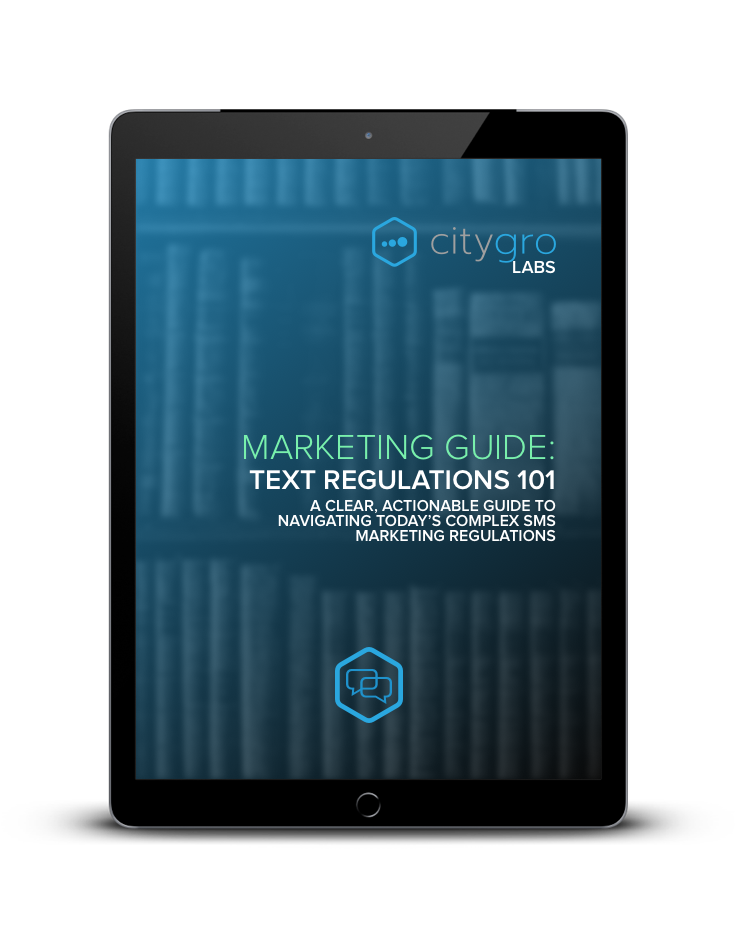Email marketing is regulated by several laws and organizations. These rules ensure that businesses follow ethical practices.
Email marketing is a powerful tool for businesses. But with great power comes responsibility. Companies must follow specific rules to protect consumers. These regulations prevent spam and safeguard privacy. Understanding who regulates email marketing helps businesses stay compliant. It also builds trust with their audience.
Different countries have different rules. In the U. S. , the CAN-SPAM Act is crucial. In Europe, the GDPR is key. Other regions have their own laws too. Knowing these regulations can save businesses from hefty fines. It ensures that marketing efforts are both effective and legal. This blog will explore the main regulators of email marketing. Let’s dive in!

Credit: citygro.com
Introduction To Email Marketing Regulation
Email marketing is a powerful tool for businesses to reach their audience. But it must follow certain rules to ensure compliance and avoid penalties. In this section, we will explore the regulation of email marketing, its importance, and its impact on businesses.
Importance Of Regulation
Regulation ensures that email marketing practices are ethical and respectful. Without rules, inboxes would flood with spam. This would reduce the effectiveness of legitimate marketing emails.
Compliance with email marketing laws builds trust between businesses and their customers. It protects consumer privacy and prevents misuse of personal data. Following regulations also enhances a brand’s reputation.
Impact On Businesses
Non-compliance can lead to severe consequences for businesses. Fines, legal actions, and damage to reputation are some of the risks. Adhering to regulations can avoid these issues.
Regulations like the GDPR and CAN-SPAM Act provide clear guidelines. These include obtaining consent, providing opt-out options, and ensuring transparency. Understanding and implementing these rules is crucial for successful email marketing campaigns.
Here is a table summarizing key regulations:
| Regulation | Region | Key Points |
|---|---|---|
| GDPR | European Union | Consent, data protection, opt-out options |
| CAN-SPAM Act | United States | Transparency, opt-out options, no misleading headers |
Businesses need to stay updated with regulations in their target regions. Regular training and audits can help ensure compliance. This safeguards the business and maintains customer trust.
Key Global Authorities
Email marketing is one of the most effective ways to reach your audience. However, it is regulated by various global authorities to ensure consumer protection and data privacy. Knowing who regulates email marketing helps businesses stay compliant and avoid hefty fines.
International Regulations
Different countries have their own set of rules for email marketing. These regulations aim to protect the privacy of individuals and ensure fair marketing practices. Some key international regulations include:
- GDPR: General Data Protection Regulation in the European Union
- CAN-SPAM: Controlling the Assault of Non-Solicited Pornography And Marketing Act in the United States
- CASL: Canada’s Anti-Spam Legislation
- PECR: Privacy and Electronic Communications Regulations in the United Kingdom
Each of these regulations has specific guidelines that businesses must follow to ensure they do not breach consumer privacy.
Data Protection Authorities
Data Protection Authorities (DPAs) are responsible for overseeing the enforcement of these regulations. They ensure businesses comply with the laws and protect consumer data. Some of the key DPAs include:
| Authority | Region |
|---|---|
| ICO | United Kingdom |
| CNIL | France |
| BfDI | Germany |
| EDPB | European Union |
These authorities have the power to investigate, fine, and take legal action against businesses that violate email marketing regulations.
Understanding who regulates email marketing is crucial for any business. This ensures compliance and builds trust with your audience.
United States: Can-spam Act
Email marketing is a powerful tool for businesses. But it must be regulated to prevent abuse. In the United States, the CAN-SPAM Act sets rules for commercial emails. This helps protect consumers from unwanted messages.
Key Provisions
The CAN-SPAM Act has several important provisions:
- Unsubscribe Option: Every email must have a clear way to opt-out.
- Content Requirements: Emails must be labeled as ads. They must include the sender’s physical address.
- No Deceptive Subject Lines: Subject lines must match the email content.
These rules help keep email marketing honest and transparent. Violating them can lead to penalties.
Enforcement Agencies
Several agencies enforce the CAN-SPAM Act:
- Federal Trade Commission (FTC): The FTC is the primary enforcer of the CAN-SPAM Act.
- State Attorneys General: They can also take action against violators.
- Internet Service Providers (ISPs): ISPs can sue spammers who violate the law.
These agencies work together to ensure compliance. They protect consumers from spam and other email abuses.

Credit: www.virfice.com
European Union: Gdpr
The European Union’s General Data Protection Regulation (GDPR) sets the standard for email marketing. It ensures that companies handle personal data responsibly. GDPR aims to protect the privacy of EU citizens. It affects how businesses collect, store, and use personal data.
Key Provisions
GDPR requires clear consent from individuals before sending emails. Companies must provide an easy way to opt out. They need to explain how personal data will be used. Businesses must ensure data is stored securely. Violating these rules can result in heavy fines.
Impact On Email Marketing
GDPR changed how businesses approach email marketing. Marketers need to focus on building trust. They must get explicit consent from users. Companies often use double opt-in methods. This ensures users want to receive emails. Marketers must also be transparent about data usage.
GDPR encourages better data management. Businesses are more careful with personal information. This leads to higher quality email lists. Companies now focus on delivering valuable content. They aim to engage users meaningfully.
Canada: Casl
Canada’s Anti-Spam Legislation (CASL) is one of the strictest regulations for email marketing in the world. Introduced in 2014, it aims to protect Canadians from spam and electronic threats. This regulation impacts how businesses can send marketing emails and other electronic messages to Canadian recipients.
Key Provisions
CASL requires businesses to obtain explicit consent before sending marketing emails. This means that recipients must clearly agree to receive these communications. Implicit consent, such as existing business relationships, may also be valid under certain conditions.
Another key provision is the requirement for clear identification. Businesses must provide accurate information about the sender. This includes the sender’s name, physical address, and contact details.
CASL also mandates an easy way for recipients to unsubscribe. The process should be simple and quick. The unsubscribe option must be available in every email sent.
Compliance Requirements
Businesses must keep records of consent. This includes proof that recipients agreed to receive emails. These records should be detailed and easily accessible.
Each email must include the sender’s contact information. This helps in building trust with recipients. It also ensures transparency.
It’s important to provide a clear and easy way to unsubscribe. Businesses must honor unsubscribe requests within 10 business days. Ignoring these requests can result in heavy fines.
Regularly review email lists to ensure compliance with CASL. Remove any inactive or unresponsive contacts. This helps maintain a healthy and engaged email list.
Australia: Spam Act
The Spam Act 2003 is the key legislation in Australia regulating email marketing. It ensures marketers follow strict guidelines to protect consumers from unwanted emails. Compliance with the Spam Act is crucial for all businesses engaging in email marketing within Australia.
Key Provisions
The Spam Act outlines several important provisions:
- Consent: Businesses must obtain explicit or inferred consent before sending emails.
- Identification: The sender’s identity must be clear in every email.
- Unsubscribe Option: Emails must include a functional unsubscribe option.
These provisions aim to ensure ethical marketing practices and protect consumer rights.
Penalties For Non-compliance
Non-compliance with the Spam Act can lead to severe penalties:
| Offense | Penalty |
|---|---|
| First Offense | Up to $220,000 |
| Subsequent Offenses | Up to $1.1 million |
These penalties highlight the importance of adhering to the Spam Act. Businesses must ensure their email marketing practices comply with the law to avoid hefty fines.
Role Of Industry Associations
Email marketing is regulated not only by laws but also by industry associations. These groups play a crucial role in maintaining standards and best practices. They ensure that marketers follow ethical guidelines and protect consumer interests.
Self-regulation
Self-regulation is a key aspect of email marketing. Industry associations create codes of conduct and guidelines. These help marketers adhere to ethical standards.
Associations such as the Direct Marketing Association (DMA) and the Email Experience Council (EEC) are prime examples. They provide frameworks for responsible marketing.
Here are some common self-regulation practices:
- Obtaining explicit consent from recipients
- Providing easy opt-out options
- Avoiding misleading subject lines
Best Practices
Industry associations also promote best practices for email marketing. These practices help in building trust and improving email campaign effectiveness.
Here are a few best practices recommended by industry associations:
- Personalization: Tailor emails to individual preferences.
- Segmentation: Divide your email list into smaller groups.
- Testing: Conduct A/B tests to optimize email performance.
Following these best practices not only enhances user experience but also improves engagement rates.

Credit: www.termsfeed.com
Future Of Email Marketing Regulation
The future of email marketing regulation is evolving rapidly. With digital landscapes changing, it’s crucial to understand emerging trends and potential changes. This knowledge helps businesses stay compliant and effective in their email marketing strategies.
Emerging Trends
Several trends are shaping the future of email marketing regulation. These trends focus on increasing user privacy and data protection.
- Stricter Consent Requirements: Regulations are enforcing stricter consent for email subscriptions.
- Enhanced User Rights: Users will have more control over their data and how it’s used.
- Cross-Border Data Transfers: New rules are emerging to protect data transferred internationally.
The focus on these trends ensures that users’ privacy is respected and protected.
Potential Changes
Potential changes in email marketing regulation aim to improve transparency and accountability.
- Universal Data Privacy Laws: Countries may adopt universal laws to streamline data privacy regulations.
- Automated Compliance Tools: Businesses might use automated tools to ensure compliance with regulations.
- Real-Time Compliance Monitoring: Real-time monitoring could become a standard practice to prevent data breaches.
These changes will help businesses stay ahead in the evolving regulatory landscape.
| Trend | Potential Impact |
|---|---|
| Stricter Consent Requirements | Higher user engagement and trust |
| Enhanced User Rights | Increased control over personal data |
| Cross-Border Data Transfers | Better protection for international data |
| Universal Data Privacy Laws | Streamlined compliance for businesses |
| Automated Compliance Tools | Efficient adherence to regulations |
| Real-Time Compliance Monitoring | Proactive prevention of data breaches |
Frequently Asked Questions
Who Enforces Email Marketing Laws?
Email marketing is regulated by various authorities. In the US, the FTC enforces the CAN-SPAM Act. In the EU, GDPR is overseen by local Data Protection Authorities.
What Is Can-spam Act?
The CAN-SPAM Act is a US law. It sets rules for commercial emails, including opt-out requirements and penalties.
What Does Gdpr Require For Email Marketing?
GDPR requires explicit consent for email marketing. Companies must also provide clear unsubscribe options and protect personal data.
Are There Penalties For Violating Email Regulations?
Yes, violating email marketing regulations can result in fines. The penalties vary by country and the specific law broken.
Conclusion
Email marketing rules vary by country. These rules ensure consumer protection. Marketers should know these regulations to avoid penalties. Follow best practices and respect privacy. This builds trust and improves engagement. Always stay updated with new laws. Respecting rules benefits both businesses and consumers.
Effective email marketing starts with compliance.



Leave a Reply